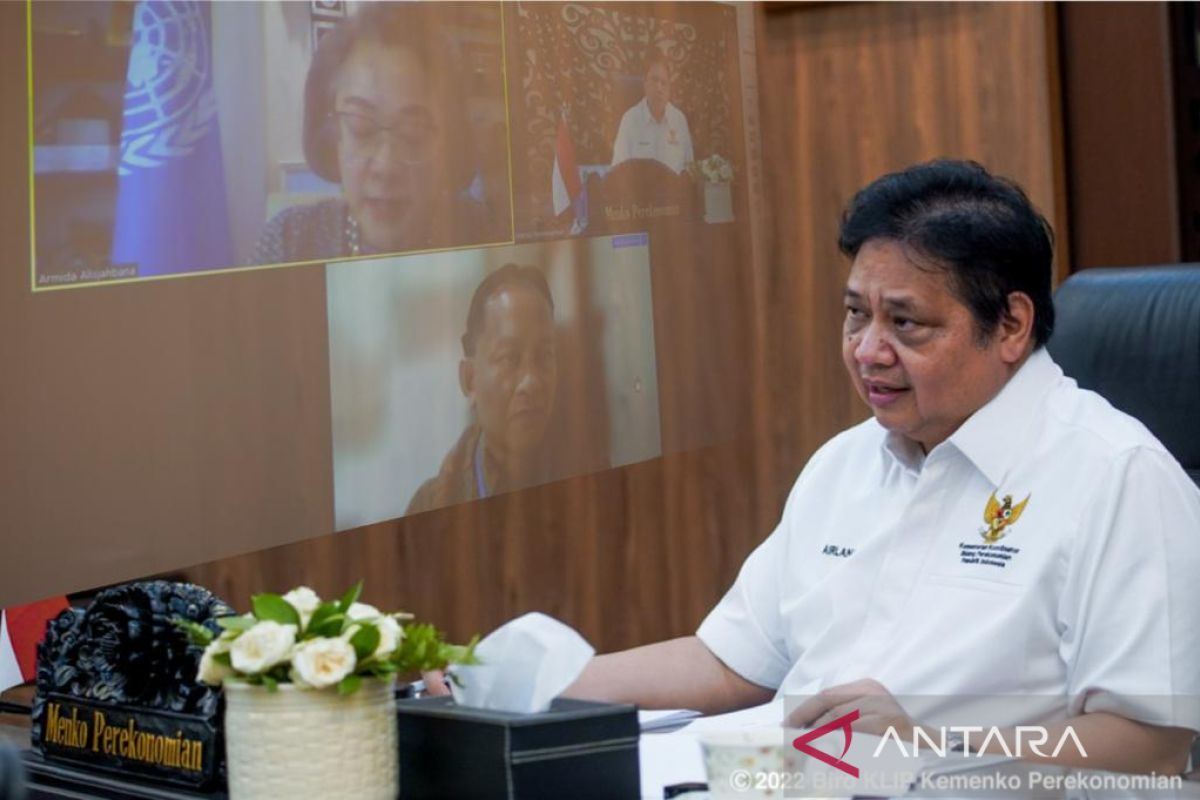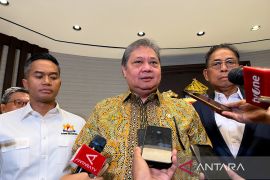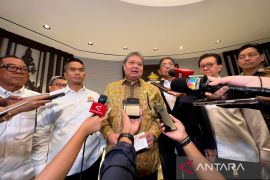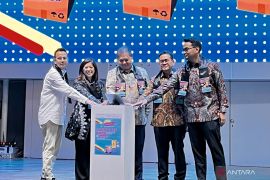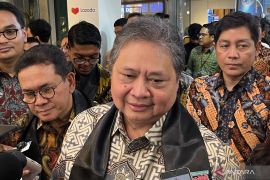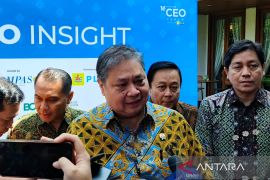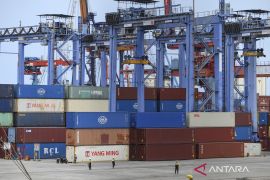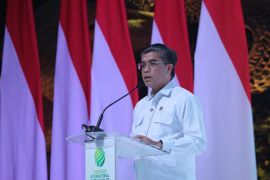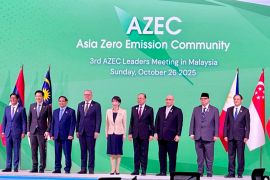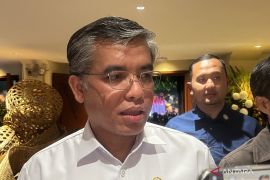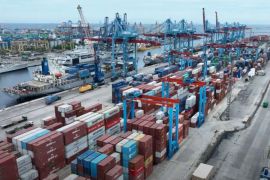For studies on food, we hope that the results of the study would be able to increase the effectiveness and productivity of national foodJakarta (ANTARA) - Coordinating Minister for Economic Affairs Airlangga Hartarto discussed the handling of global crisis at a virtual meeting with the United Nations Economic and Social Commission for Asia and the Pacific (UNESCAP) Executive Secretary Armida S. Alisjahbana.
"Indonesia plays a role in facing the global condition that is occurring in Eastern Europe today. In addition, Indonesia has a strategic position in fulfilling (the requirement for) food and commodities, especially coal in the region," Minister Hartarto noted in a statement on Thursday.
At the meeting driven by the appointment of Indonesia as a member of the Global Crisis Response Group (GCRG), Minister Hartarto spoke at length on the discussions in the GCRG Sherpa forum covering food security, energy security, and financial issues that were in line with the discussions on the priority agenda of the G20 Presidency of Indonesia.
Regarding food security, Hartarto highlighted that Indonesia was able to meet the national food requirements. This year, Indonesia recorded a rice production surplus of seven million tons. Meanwhile, in terms of energy security, Indonesia's coal commodity is in high demand as a result of the high oil and gas prices due to the conflict in Eastern Europe.
Regarding Indonesia's role in the GCRG and implementation of the Sustainable Development Goals (SDGs), Hartarto is optimistic that the UNESCAP would support the Government of Indonesia in studying the focus of the GCRG discussion on food, energy, and finance and then reviewing financing schemes for development, such as through blended finance schemes and in the energy transition efforts as well as for tackling climate change.
"For studies on food, we hope that the results of the study would be able to increase the effectiveness and productivity of national food," he stated.
Meanwhile, speaking in connection with the digital economic potential, Minister Hartarto stated that Indonesia is the largest digital economy market in Southeast Asia. In 2019, Indonesia's digital economy was valued at US$40 billion and is expected to increase to US$133 billion by 2030. The digital economy sector in Indonesia has also recorded positive growth of 11 percent during the COVID-19 pandemic.
"However, on the other hand, Indonesia's digital literacy status and digital competitiveness are still not optimal, so this requires support from various parties to take advantage of opportunities in the sector," he emphasized.
Related news: Minister calls on youth to grab opportunities, compete globally
Furthermore, Hartarto also reported developments on the Pre-Employment Card Program. Since being started in April 2020 and until June 2022, as many as 12.8 million people have availed the benefits of the Pre-Employment Card Program, segregated into 53 percent of male recipients and 47 percent of female recipients.
During Indonesia's G20 Presidency, Hartarto deems it crucial for Indonesia to cooperate with the parties involved in the digital economy ecosystem in order to provide concrete achievements for the community. In line with this target, the Digital Economy Working Group will launch the G20 Digital Innovation Network (DIN).
The G20 DIN Forum is the first forum that brings together several startups, venture capitalists, policy makers, and corporations in the digital economy sector.
This year, the G20 DIN targets 100 startups, with innovations focused on the health sector, green and renewable energy, financial inclusion, and supply chains.
Meanwhile, UNESCAP Executive Secretary Armida Alisjahbana lauded the implementation of the Pre-Employment Card Program in Indonesia. Apart from helping Indonesian people by improving their skills and competencies, the program is also a semi-social assistance facility to communities affected by the COVID-19 pandemic.
Related news: Minister invites Germany to invest in Indonesia
She noted that the Pre-Employment Card Program also contributed to increasing financial inclusion, as it collaborated with formal financial institutions and fintech in the distribution of incentives. The collaboration between the Government of Indonesia and UNESCAP should be realized, so that the program can be replicated by other countries, especially nations in the Asia-Pacific region.
Alisjahbana also congratulated and praised the implementation of the Indonesian G20 Presidency while expressing hope that this activity would maintain the unity of G20 in order to provide solutions to the current global problems. Moreover, she supports the achievements and progress of government programs in encouraging the achievement of SDGs in Indonesia. She is optimistic that these achievements would serve as best practices for other countries in the Asia-Pacific region.
Related news: Indonesia focusing on domestic food availability: minister
Related news: Regional heads to support economic recovery: Minister Hartarto
Translator: Katriana
Editor: Fardah Assegaf
Copyright © ANTARA 2022
